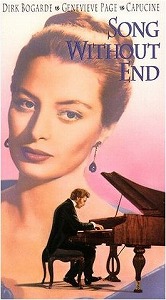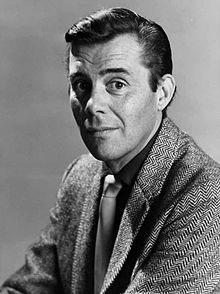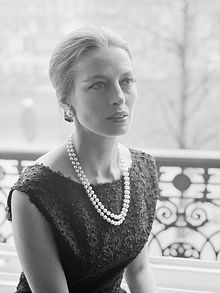Song Without End
Song Without End, subtitled The Story of Franz Liszt 1960 is a biographical film romance made by Columbia Pictures. It was directed by Charles Vidor, who died during the shooting of the picture and was replaced by George Cukor. It was produced by William Goetz from a screenplay by Oscar Millard, revised uncredited by Walter Bernstein and based on screenwriter Oscar Sauls original 1952 script uncredited. The music score was by Morris Stoloff and Harry Sukman with music by Franz Liszt, and the cinematography by James Wong Howe and Charles Lang uncredited. The film also featured music of those contemporaries of Liszt whom he unselfishly championed by featuring them in his numerous performances e.g., Richard Wagner, Hector Berlioz, among others.
Columbia Pictures had plans to film The Franz Liszt Story back in 1952. Studio head Harry Cohn hired his friend, acclaimed screenwriter Oscar Saul A Streetcar Named Desire for Saul to produce his own original screenplay with William Dieterle set to direct. When the studio delayed going forward with the project due to production and casting issues for three years, Oscar Saul backed out, and Columbia announced in 1955 that Gottfried Reinhardt had been commissioned to write a new screenplay. Finally in 1958, veteran producer William Goetz took over the project with Oscar Millard as his screenwriter. Charles Vidor, who had previously directed A Song to Remember 1945, a biopic of Frdric Chopin, was assigned to direct using elements of all three screenwriters scripts.As nearly forty musical selections would be heard in the film, Morris Stoloff, head of Columbias music department, began immediate work on the soundtrack. After selecting the pieces to be played, he engaged piano virtuoso Jorge Bolet, the Roger Wagner Chorale and the Los Angeles Philharmonic to perform the score. Harry Sukman was in charge of the music editing and adaptations that were required for the musical score. Musicologist, Abram Chasins was also a musical consultant on the film. The recording of the music by Earl Mounce was completed prior to the start of production so that Bogarde could learn the finger movements necessary to make him appear to be playing the piano realistically in the film. Musical advisor Victor Aller spent three weeks rehearsing Bogarde in proper piano technique. ........
Source: Wikipedia



